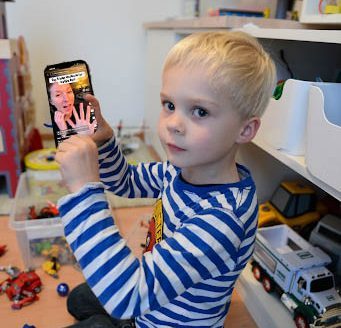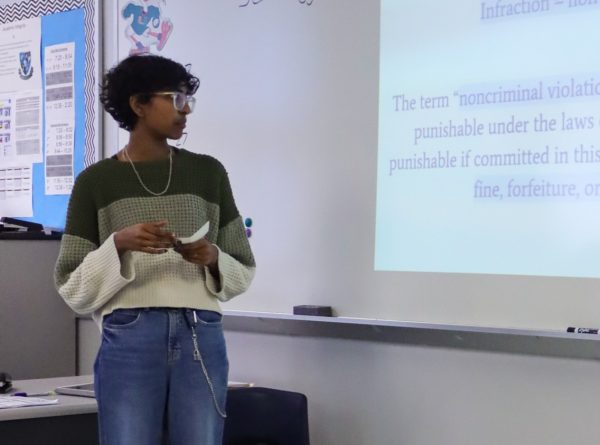Fighting siblings’ ghosts
Students can feel as if their older sibling is still at school with them

photo by Emily Cosio
Senior Jake Adair sits in the class that he has with his sister Katelyn Adair. Both Katelyn and Jake are glad that the teacher does not acknowledge them as siblings.
Freshman Dominic Diatzikis remembers his first day of high school.
“Are you going to be a funny guy like your brother?”
“Are you as smart as your sister?”
If a teacher has taught a student’s sibling, they often make comparisons between the two. They might assume that a student is shy or talkative, smart or needs extra help, all based on the last name. Some students see this as being unfair for teachers to compare their students.
Researchers have discovered that students who try to live up to teacher’s high expectations put more stress on themselves. When teachers have low expectations, students may not try as hard in class, leaving no healthy pressure for students to challenge themselves.
“We are two different students and I don’t want teachers to get an opinion of me based off another student,” sophomore Harini Sankar said.
Theodore Roosevelt once said, “comparison is the thief of joy.” Some parents already make comparisons between their kids, so these students feel like they should not experience the same thing at school. Most of the time, students can feel as if their older brother or sister is sitting next to them in class.
“I accidentally said the wrong answer in class once and my teacher told me that I was just like my brother,” Diatzikis said.
Although teachers are trained to treat students as individuals, it can be difficult to do so. The home environment of siblings is often the same. For example, if one student always completes their homework, odds are that the family expects good grades from the other siblings. Teachers may assume that students coming from the same family learn the same way.
“You kind of assume that the second or third kid will have the same values and motivations,” said teacher Yvette Rhode.
Every person thinks, acts, speaks, contributes and learns in a unique manner from any other person. Most students agree that teachers should not create a nimpossible standard based on anyone’s performance, even if they are related to them.
According to Parents.com the birth order of students can play a role in their behavior, which shows that teachers can not judge students. Many studies have shown that the oldest sibling will most likely be smarter and have a higher IQ due to parents being stricter. The middle child tends to be on the opposite extremes either being a people-pleaser or having a behavior problem. The youngest child usually has the most attention and is used to being babied. With this range of personality traits, chances that a student will behave similarly to their siblings is low, and teacher expectation are likely to be shattered.
Being a student is difficult enough without feeling like your sibling is constantly trailing behind you. What a student is doing in class can very well set a new expectation for their younger sibling, which can make them feel like less of an individual. Each student is unique, and expecting someone to behave just like their siblings not only can lead a teacher to incorrect conclusions about a student, but can also hurt a student’s feelings and performance.
Your donation will support the student journalists of Hagerty High School. We are an ad-free publication, and your contribution helps us publish six issues of the BluePrint and cover our annual website hosting costs. Thank you so much!






